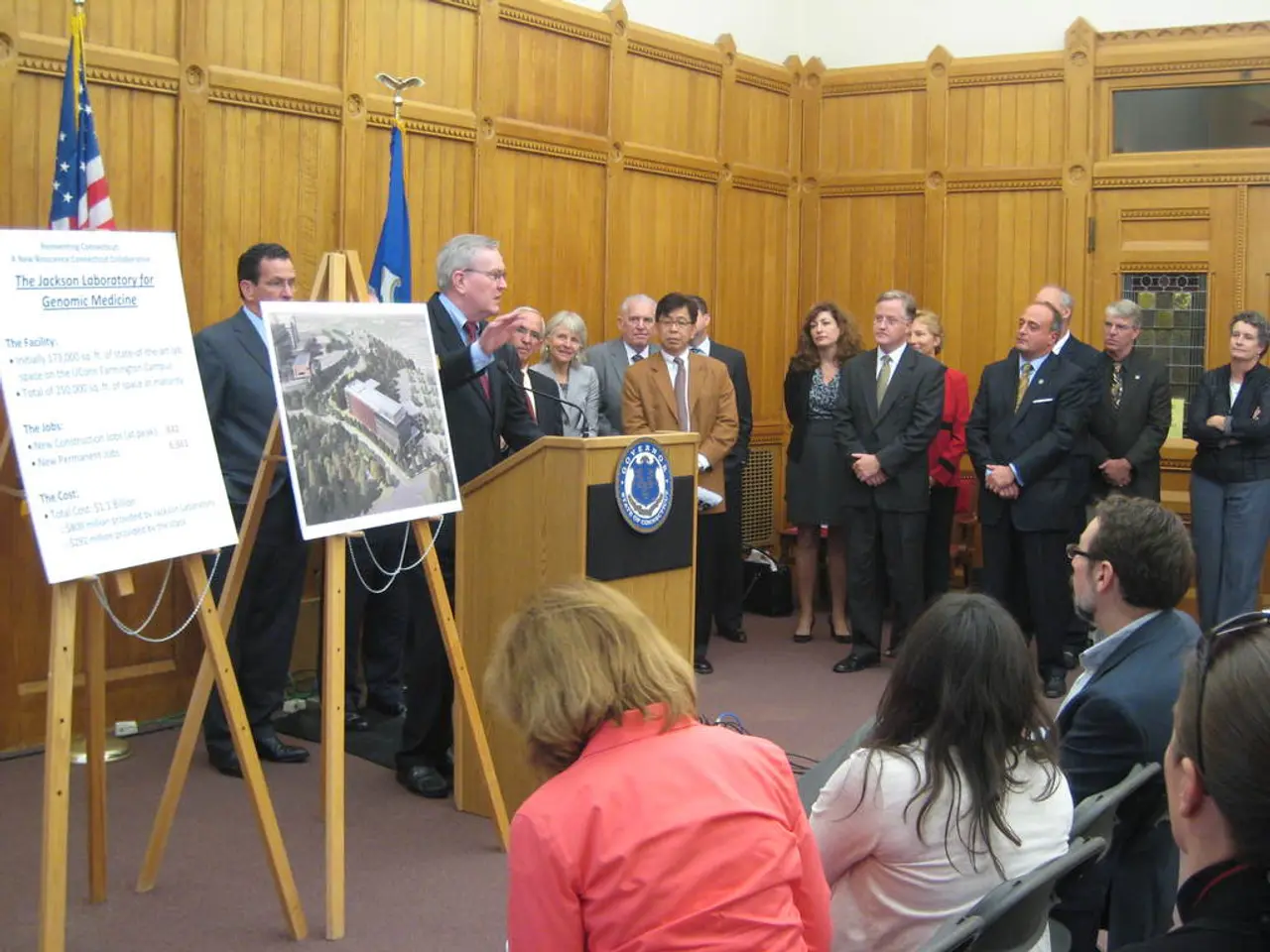Tactics for Maintaining a Favorable Political Image
In the fast-paced world of politics, reputation management has become a crucial aspect for politicians aiming to connect with voters, navigate crises, and maintain a positive image. Here's a breakdown of the key elements and best practices for political reputation management.
Monitoring and Engagement
Analytics help track sentiment, identify emerging issues, and measure the impact of reputation management strategies. Social media allows politicians to directly engage with the public, address concerns quickly, and shape narratives in real time. Social listening tools, media tracking services, and feedback from constituents are essential for monitoring public sentiment and news coverage.
Transparency and Ethics
By being transparent, delivering on promises, avoiding unethical practices, and maintaining consistent public communication, politicians can prevent reputation damage. Ethical considerations require honesty, transparency, respect for opponents, and avoidance of manipulative tactics.
Crisis Management
Effective strategies for crisis management in reputation management for politicians include early recognition of potential crises, transparent and regular communication, maintaining bounded optimism, coordination among stakeholders, and incorporating legal and digital security considerations.
Key components are:
- Early recognition: Politicians need to identify emerging issues quickly by monitoring public sentiment, media, and social platforms to mitigate damage before crises escalate.
- Transparent communication: Openly acknowledging the crisis, detailing response plans honestly, and providing frequent public updates help build trust and control narratives.
- Bounded optimism: Leaders should balance a positive, reassuring attitude with sensitivity to the seriousness of the event, which helps maintain public confidence without appearing insensitive.
- Coordinated institutional action: Drawing from broader crisis management lessons, politicians benefit from a whole-of-society or whole-of-institution approach that clarifies roles among institutions and ensures seamless response coordination.
- Legal and digital security protocols: Communication should be carefully crafted with legal review to avoid weakening a legal position later, and digital reputation monitoring plus cybersecurity are essential to safeguard against attacks or misinformation.
- Strategic statesmanship: Effective crisis management for politicians requires foresight, commitment, integrity, and vision, avoiding short-term partisan objectives that can worsen crises.
Proactive Efforts
Proactive efforts like highlighting achievements, engaging with communities, and addressing issues early help maintain a strong image. Timely and transparent communication can reduce damage, rebuild trust, and demonstrate accountability during crises. Politicians can acknowledge mistakes, take corrective action, communicate openly, and focus on delivering results to regain trust after a crisis.
Public Relations and Communication
Public relations professionals help craft messages, handle media interactions, and position politicians positively in public discourse. Best practices include consistency in messaging, active listening to constituents, timely crisis responses, and transparent communication.
Influencing and Shaping Opinions
Online opinions can influence voter perceptions and should be monitored and addressed professionally. Media bias can shape narratives, requiring politicians to diversify communication channels and present facts consistently.
Building Trust and Influencing Voter Perception
A positive and credible image can directly impact voter confidence and turnout. Politicians can use their speeches and public appearances to connect with audiences, clarify positions, and reinforce a politician's values and leadership qualities.
Conclusion
Effective political reputation management involves a combination of proactive monitoring, honest communication, coordinated responses, legal caution, and strategic leadership. By understanding and applying these principles, politicians can build trust, maintain credibility, and influence voter perception, which are crucial for electoral success and long-term political careers.
- Data analytics services from social media platforms help politicians track sentiment, identify emerging issues, and measure the impact of their reputation management strategies.
- In order to prevent reputation damage, politicians must adopt ethical practices that include transparency, delivering on promises, and avoiding manipulative tactics.
- During crises, politicians can maintain their reputation by implementing early recognition, transparent communication, bounded optimism, coordinated institutional action, legal and digital security protocols, and strategic statesmanship.
- To build trust and influence voter perception, politicians can use public relations professionals to craft messages, handle media interactions, and position themselves positively in public discourse, while also engaging with communities, addressing issues proactively, and presenting facts consistently to counter media bias.








